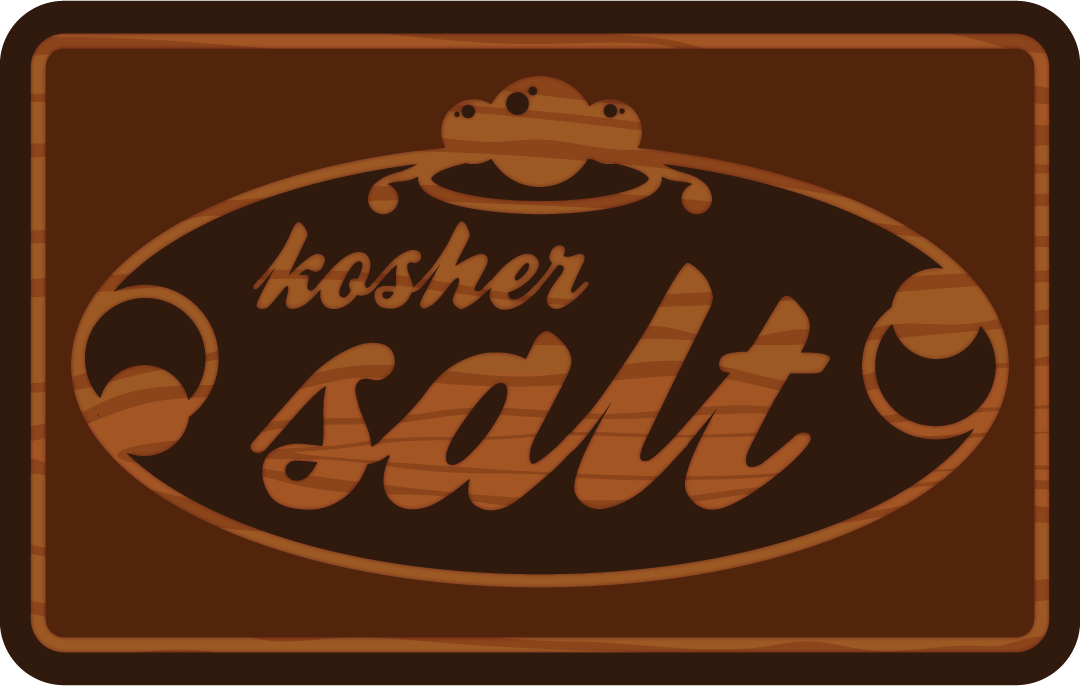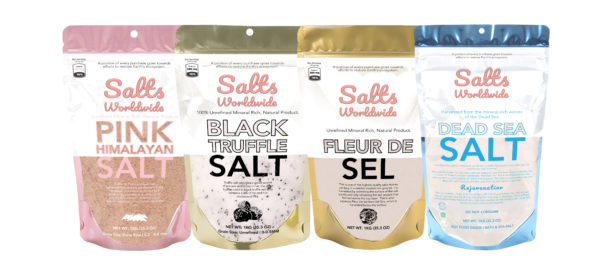Kosher salt is created by evaporation approach. It may be applied in almost all cooking, but it is not generally recommended for baking with recipes, with little liquid (wet ingredients). Some kosher salt consists of anti-clumping agents in little quantities. Unlike some frequent table salt, it typically contains no added iodine.
Kosher salt is not as salty in comparison to table salt or sea salt. Unfortunately, it isn’t readily available in many places. In fact, it isn’t even necessarily certified kosherthough if it is to be used in a kosher meal, it has to be. The motive behind this is that kosher salt is distinguished by a mild flavor. Though, Kosher salt is usually not suggested for baking applications particularly recipes that have a little quantity of liquid ingredients, since maybe it doesn’t thoroughly dissolve. It consists half the salting power of a regular table salt and is easier to handle for chefs due to its large grainy texture. It may also have a hollow pyramidal shape.
Kosher salt typically does not include any additives though some businesses may add a few minerals to allow it to be free flowing. Kosher salt, by contrast, has larger, coarser grains that are simple to feel and simple to sprinkle, which makes it much simpler to gauge the appropriate degree of seasoning. It consists of sodium chloride, but it normally does not contain the mineral iodine, so it is not considered iodized salt.
The Kosher Salt Brasil Trap
Table salt comes in fine crystals so that it might not be as simple to sprinkle evenly. If you take a look at table salt below a microscope, you will observe that table salt was milled such that several of the salt crystals look like little cubes. Himalayan salt is a sort of rock salt from Pakistan. It is a superb salt to utilize in spice blends because the light texture mixes nicely with different ingredients. It might also be put to use as a finishing salt for cooked and baked goods to provide the impression a product is saltier.
Step into more or less any gourmet shop and you’ll find sea salts from all over the world in a multitude of shades and textures. Sea salts are normally offered in a huge variety of flavors, which can enliven dishes, and based on the use, the bigger particles may give an aesthetic appeal. Some sea salt is made of seawater that’s artificially heated. French sea salt is distinct from the majority of other sea salts in that it is produced from sea water that’s evaporated from a basin with the resulting salt not being purified in any manner.
An integral reason recipes specify a kind of salt is because different salts have various densities, which means you can’t utilize them measure for measure. It is possible to make use of these salts interchangeably in the event you need to, but it’s really worth using the appropriate kind for the most suitable occasion. It is thought to be a handy salt for sodium reduction.
Some brands include anticaking agents in little quantities. Interestingly enough, it’s believed this manner of salt took on the name kosher because the exceptional texture and shape are helpful in the practice of koshering meat. The decision to use either table salt or sea salt needs to be based on whether iodine fortification is necessary or wanted, along with culinary elements like taste, texture and maybe even color. While beneficial for your wellness, potassium iodide has to be stabilised with different chemicals once added to salt, and such additions are considered to impact the flavour and lower the purity of the item. Estimating the total amount of salt may also be more easily evaluated when salting by hand as a result of bigger grain size. As a consequence, it’s extremely pricey. This procedure produces relatively huge flakes.
Put them in a container, and you also wind up getting a lot of air space. It might be easier to handle due to the size. It has much bigger grain size in contrast to that of the normal table salt. The bigger crystal size of kosher salt makes it less difficult to pinch and sprinkle.
The other selling point of kosher salt is it is a purer product, because it’s not iodised. The major point of difference of kosher salt is its shape, and this is, in addition, the reason chefs really like to utilize it. The difference can be found in processing as kosher salt is processed in such a way in which the crystals are big and irregular. The issue is that you merely have kosher salt. The end result is there are no more salty pockets. Together with that, there’s the simple fact it has a cleaner and milder taste. The reality is that every salt has a different weight and salinity, therefore it’s important to get to understand the differences.


